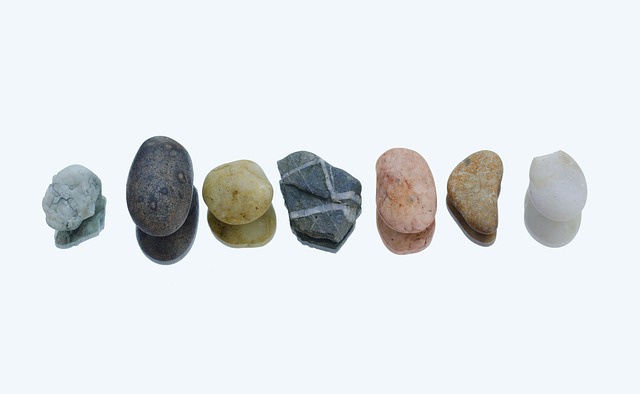Regenerative care, a cutting-edge field in healthcare, leverages both body therapy and mind therapy to offer a holistic approach that acknowledges the interconnectedness of physical and mental well-being. Body therapy encompasses practices like massage, physical rehabilitation, and lifestyle modifications for musculoskeletal issues, while mind therapy includes mental health practices such as cognitive-behavioral therapy and meditation to address psychological factors influencing physical recovery. The combination of these therapies is crucial in fostering a comprehensive healing experience, where improvements in one domain positively impact the other. This integrated approach not only harnesses the body's inherent restorative abilities but also enhances mental well-being, particularly for those with chronic conditions. By integrating both forms of therapy, healthcare practitioners provide a robust framework for regeneration, resilience, and an improved quality of life. The article emphasizes that a personalized wellness regimen, which merges body therapy with mind therapy, is key to optimizing regenerative care and achieving holistic health.
explore the transformative power of integrating mental and physical well-being within regenerative care. This article delves into the harmonious blend of body therapy and mind therapy, highlighting their roles in fostering overall health rejuvenation. We will examine the foundational principles of regenerative medicine that influence both physical and psychological well-being, and discuss how to effectively combine body therapies such as massage and movement with mind therapy techniques. Additionally, we’ll provide insights on tailoring a personalized wellness journey that harnesses the full potential of regenerative care for optimal health restoration. Join us in understanding the synergistic approach that promotes a holistic, resilient self.
- Embracing Holistic Health: The Synergy of Body Therapy and Mind Therapy in Regenerative Care
- Understanding the Principles of Regenerative Medicine and Its Impact on Physical and Mental Well-Being
- Integrating Body Therapies: From Massage to Movement, Enhancing Physical Rejuvenation
- Cultivating a Resilient Mind: Techniques in Mind Therapy That Complement Regenerative Care
- Crafting a Personalized Wellness Journey: Combining Body and Mind Therapies for Optimal Regeneration
Embracing Holistic Health: The Synergy of Body Therapy and Mind Therapy in Regenerative Care

In the realm of regenerative care, the integration of body therapy and mind therapy stands as a pivotal approach to holistic health. Body therapy encompasses a spectrum of practices aimed at physical rejuvenation, including but not limited to, massage therapy, physical rehabilitation, and lifestyle modifications that address musculoskeletal issues. These therapies are designed to enhance the body’s natural healing processes, thereby promoting overall physical well-being. In tandem with these bodily interventions, mind therapy plays an equally significant role. It involves mental health practices such as cognitive-behavioral therapy, meditation, and stress management techniques. These practices are instrumental in addressing psychological factors that can impact an individual’s healing journey, emphasizing the mind’s potential to influence physical health outcomes. The synergy between body therapy and mind therapy within regenerative care is a testament to the interconnectedness of mental and physical health, where nurturing one positively impacts the other, leading to a more comprehensive and effective healing experience. Practitioners in this field recognize that by addressing both the physical and mental aspects of well-being, they can foster an environment conducive to regeneration, resilience, and improved quality of life for their clients.
Understanding the Principles of Regenerative Medicine and Its Impact on Physical and Mental Well-Being

Regenerative medicine heralds a new era in healthcare, offering innovative therapies that harness the body’s innate capacity for self-repair and regeneration. At its core, this field integrates biologic agents, such as stem cells and tissue engineering, to restore, maintain, or improve physical function in conditions where traditional medicine falls short. This approach not only addresses the physiological aspects of disease or injury but also promises a significant positive impact on mental well-being by offering hope and the prospect of recovery that conventional treatments might not provide. The psychological benefits of regenerative therapies are manifold, from alleviating the distress associated with chronic illnesses to fostering a sense of empowerment and agency over one’s health outcomes.
The interplay between body therapy and mind therapy is a pivotal aspect of regenerative care, emphasizing the holistic restoration of both physical form and mental state. For instance, cell-based therapies for musculoskeletal conditions not only aim to repair tissues but also seek to mitigate the stress and anxiety that often accompany such health issues. The integration of these treatments within a comprehensive wellness plan can lead to improved quality of life, as individuals may experience less pain, greater mobility, and enhanced mental clarity, which in turn supports overall psychological resilience. This synergistic approach underscores the importance of considering both physical and mental aspects in healthcare, paving the way for more balanced and effective treatment paradigms.
Integrating Body Therapies: From Massage to Movement, Enhancing Physical Rejuvenation

Embarking on a journey towards holistic health involves a harmonious integration of body therapies that complement mind therapies for an enhanced rejuvenation experience. Body therapies, such as massage and movement exercises, play a pivotal role in this integration. For instance, massage therapy not only alleviates physical tension but also promotes mental calmness, reducing stress hormones like cortisol and encouraging the release of serotonin and dopamine, which contribute to overall well-being. Furthermore, various movement therapies, including yoga and Pilates, engage both body and mind, fostering flexibility, strength, and a meditative state conducive to mental clarity and emotional balance. These practices are designed to work in tandem, creating a feedback loop that nurtures the body’s physical health while also supporting cognitive and emotional resilience. Incorporating these therapies into a regenerative care plan can lead to a more balanced and integrated approach to wellness, where the physical and mental aspects of health are nurtured simultaneously for optimal results.
Cultivating a Resilient Mind: Techniques in Mind Therapy That Complement Regenerative Care

Integrating mind therapy with regenerative care can lead to a holistic approach that significantly enhances overall well-being. Mind therapy techniques such as cognitive-behavioral therapy (CBT) and mindfulness meditation are known to influence brain plasticity, which can be complementary to the body’s natural healing processes promoted by regenerative care. By addressing psychological stressors, these therapies can potentially reduce inflammation and improve outcomes, suggesting a synergistic effect when combined with physical interventions like stem cell therapy or platelet-rich plasma injections.
Incorporating mindfulness practices into one’s daily routine not only fosters mental clarity and emotional regulation but also supports the body’s healing mechanisms. This integration can lead to a more resilient mind, which is crucial for maintaining physical health. For instance, practicing mindfulness can alter cortisol levels—a key stress hormone—thereby affecting the immune system and facilitating a state conducive to regenerative care treatments. As such, the combination of body therapy and mind therapy becomes a powerful tool in achieving a balanced and resilient lifestyle.
Crafting a Personalized Wellness Journey: Combining Body and Mind Therapies for Optimal Regeneration

Embarking on a journey toward optimal regeneration requires an integrated approach that harmonizes both physical and mental well-being. A personalized wellness journey, when tailored to individual needs, can harness the synergistic benefits of body therapy and mind therapy, leading to a more holistic healing experience. Body therapy encompasses a spectrum of treatments aimed at physical rejuvenation, from chiropractic care to physiotherapy, which not only addresses acute or chronic pain but also promotes overall bodily function. When paired with mind therapy techniques such as meditation, cognitive-behavioral strategies, and stress management practices, the body’s capacity for self-repair is significantly enhanced. This integration ensures that both the somatic and psychological aspects of health are nurtured, creating a foundation for robust regenerative care.
Incorporating mind therapy into the regimen of body therapy can be transformative. For instance, mindfulness exercises can heighten one’s awareness of the body’s needs, thereby informing more effective treatment choices and outcomes. This union fosters a deeper understanding of how mental health influences physical well-being and vice versa. By recognizing the interconnectedness of these two domains, individuals can engage in a more cohesive healing process that targets both the source of discomfort and the underlying mental patterns that may contribute to health imbalances. This comprehensive approach not only accelerates the body’s innate healing abilities but also empowers individuals with the tools to maintain long-term wellness.
In concluding this exploration into the intersection of mental and physical well-being with regenerative care, it is clear that a comprehensive approach, integrating body therapies and mind therapies, is pivotal for optimal health outcomes. The principles of regenerative medicine underscore the importance of this holistic perspective, where the interconnected nature of our physical and mental states is acknowledged and nurtured. By adopting personalized wellness strategies that merge these therapies, individuals can embark on a transformative journey towards healing and rejuvenation, fostering a robust foundation for resilience and vitality. Embracing this synergy not only aligns with the tenets of regenerative care but also promises to revolutionize our approach to wellness, ensuring that both body and mind are attended to in their entirety.
